The list of things you can, cannot, and shouldn’t do before, during, and after pregnancy can be incredibly overwhelming. Some experts say one thing, while others offer completely different advice. One thing is for sure though – alcohol can affect your baby. So, how soon after giving birth can you celebrate? You might be asking, “When can I drink alcohol after pregnancy?” Here’s what you need to know!
Let’s Get Right to the Main Concern – When Can I Drink Alcohol After Pregnancy?
Drinking alcohol during pregnancy is really about timing if you’re breastfeeding. You obviously want to avoid having alcohol affect your breast milk. It’s best to wait at least two hours after having one drink to feed your baby.
While the Centers for Disease Control and Prevention (CDC) does recommend not drinking alcohol at all while breastfeeding, an occasional drink should be fine.
One-drink equivalents you should know:
- 12 ounces (355 mL) of beer
- 5 ounces (125 mL) of wine
- 1.5 ounces (45 mL) of hard alcohol
The best thing you can do is to plan your breastfeeding schedule around any plans to consume alcoholic beverages by pumping plenty of milk ahead of time to cover your baby’s meals, then pumping the breast milk that may be affected by alcohol and dumping it out.
If you’re not nursing after birth, you may drink after pregnancy when you like. However, stay safe by being aware that your tolerance is likely much lower from not having consumed alcohol for about nine months.
Should I Be Worried If I Drank Alcohol Before I Found Out I Was Pregnant?
You might not only ask “When can I drink alcohol after pregnancy,” but you might also want to know if you should be worried that you drank before you found out you were pregnant.
It’s important to stop drinking as soon as you find out you are pregnant. Studies have shown that drinking alcohol during the early weeks of pregnancy will likely not harm your baby. However, the studies are limited and were focused on women who drank up to 15 weeks of pregnancy. If you are concerned, be sure you speak to your OB/GYN.
How Do I Talk to My OB/GYN About Drinking?
If you suspect you have a problem with alcohol, it is always a smart idea to talk to your women’s healthcare specialist openly and honestly. They can lead you to the resources you need that will allow you to have the healthiest baby possible.
I Realize I Need to Be Careful When Breastfeeding – What Else Should I Know?
Breastfeeding your baby does mean you need to be careful about what you ingest. There are some recommendations all experts agree upon when it comes to what you can do when for the following:
- Healthy diet: If you’re not already in the habit of eating healthy, now is a great time to start. Avoid processed foods as these contain little nutritional value and way too much sugar, fat, and calories.
There are some spices or flavorings that pass through your breast milk and make it taste unpleasant to your baby. Garlic, onion, pepper, and other spices can be strong. If you notice your baby isn’t interested in your breastmilk, you might want to take a look at your diet.
If you suspect your diet might be affecting your baby, there are signs you can look for including but not limited to vomiting, diarrhea, constipation, hives, congestion, gas, and/or fussiness. Any concerns should be addressed immediately with your healthcare professional.
Many mothers are concerned about eating fish, specifically sushi, after pregnancy. You can eat sushi but stay away from fish that contain high levels of mercury.
- Caffeine: During pregnancy, your doctor probably suggested a limit of 200 milligrams of caffeine per day. The good news is the restriction is lifted after you have your baby.
The amount of caffeine that gets through breast milk is relatively small, but babies do have a hard time breaking down caffeine so be aware of how much you are drinking and ask your healthcare provider if you’re concerned about excessive caffeine intake.
- Vitamins and supplements: If you take supplements including vitamins while breastfeeding, be sure to speak to your OB/GYN as they are not usually regulated by the FDA. There are certainly some supplements that should probably be avoided while breastfeeding and others that may benefit you and your baby.
- Exercise: Many women enjoy exercise and want to know if it will affect their breast milk. You might be ready to get back to the gym but unsure about what you can do. While you do need to wait at least six weeks before engaging in strenuous activity, moderate exercise shouldn’t affect your breast milk. You do need time to heal, so pay attention to your body and start exercising gradually.
Are You Interested in Learning More About What You Should and Shouldn’t Do After Pregnancy? Trust the Experts at Women’s HealthCare Specialists!
Our board-certified doctors expertly combine modern medical practices with classic, compassionate care, and we’re honored to partner with you during every step of your pregnancy.
We understand you want only the best for your baby before and after they’re born. Our team is here to answer all of your questions regarding pregnancy, breastfeeding, and beyond while providing the highest quality care at our state-of-the-art facility to ensure you and your baby are healthy.
To schedule your appointment, contact us at 301-812-3400 today. We look forward to meeting you! If you have questions about our additional gynecological services, please don’t hesitate to ask.



